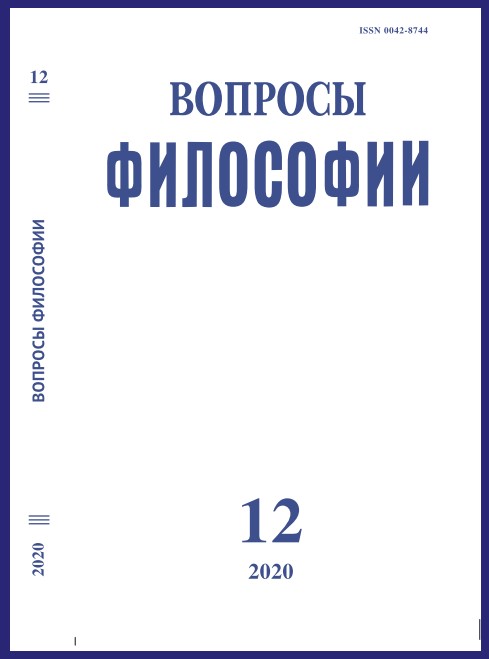International Congress of Philosophy As a Space for Personal Communication
DOI:
https://doi.org/10.21146/0042-8744-2020-12-29-33Keywords:
International Congress of Philosophy, Interest, Communication, Epistolary legacy, Philosophical languageAbstract
The article looks into the World Philosophical Congress as a space for personal communication. The author examines the archival (primary epistolary) legacy of the organizers and participants of the Second Congress (Édouard Claparède, Henri Bergson, Vladimir Nikolaevich Ivanovsky, Georgy Ivanovich Chelpanov). H. Bergson’s letters to Ed. Claparède show us how the topics of speeches formed, what role journals played in organizing congresses, and how the participants of this event reacted to the publication of reports and speeches. It is returning to the history (to the handwritten and published materials) of international philosophical congresses of the beginning of XX century, that allows us today to comprehend the trends in the development of Philosophical issues, to record the successive thematic areas that have not lost their relevance for modern intellectual culture, and also to show the existential specifics of reflection about congresses, which manifested itself in reviews of V.N. Ivanovsky and G.I. Chelpanov. Their discourse about plenary and sectional reports, evaluations of speeches, as well as general conclusions about the strength and weaknesses of this intellectual event in the life of the world (international) philosophical community, resulted from their own philosophical interests. The most significant attention is paid to the “fatal flaws” of any philosophical congress (according to Chelpanov’s apt remark): lack of live communication (debate on reports), as well as “the lack of one language, equally accessible to all participants”. Both of these flaws are genuinely unavoidable. Even with the expansion of the technical possibilities of transferring information, the monologue of speakers and terminological pluralism persist throughout the existence of World philosophical congresses.

